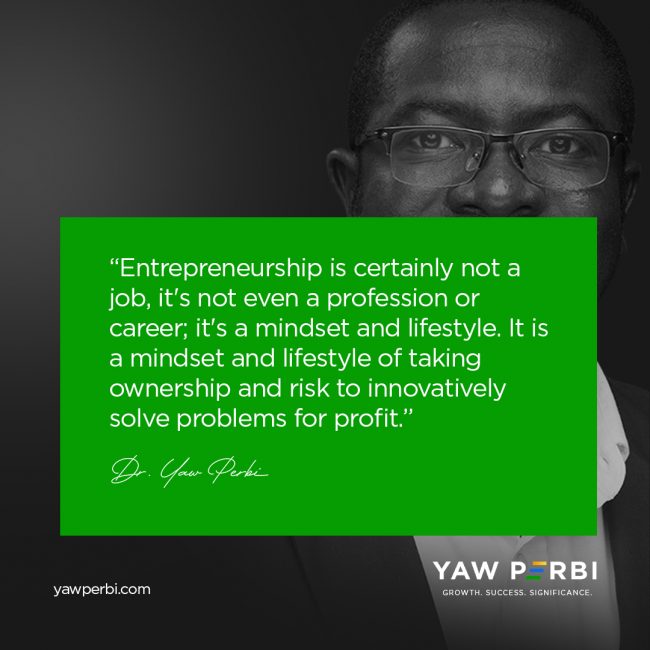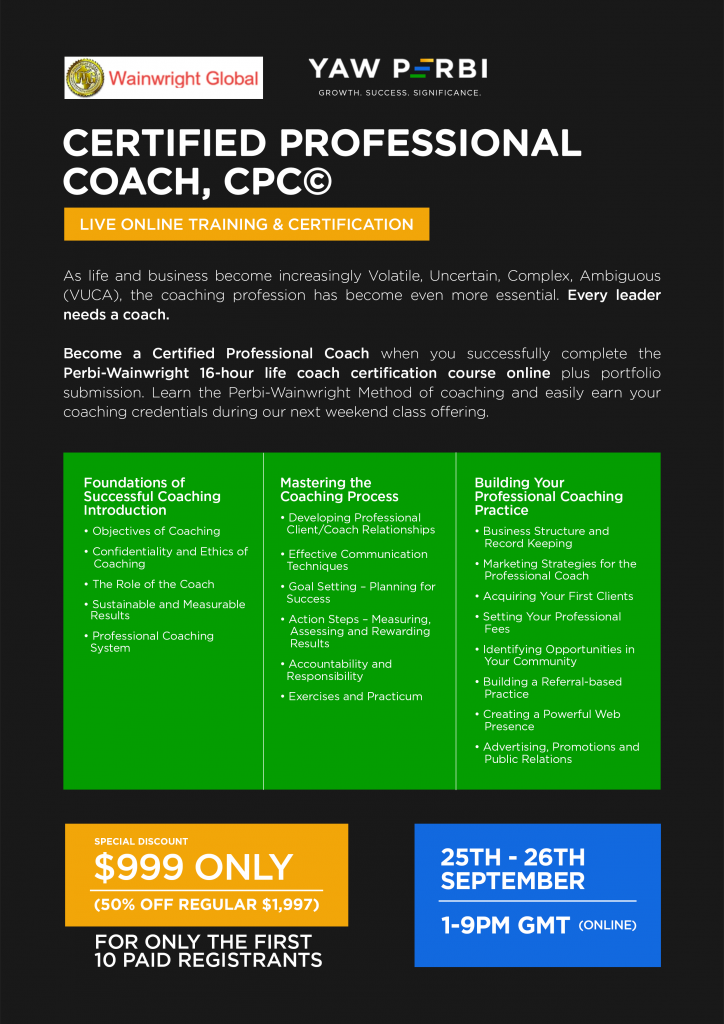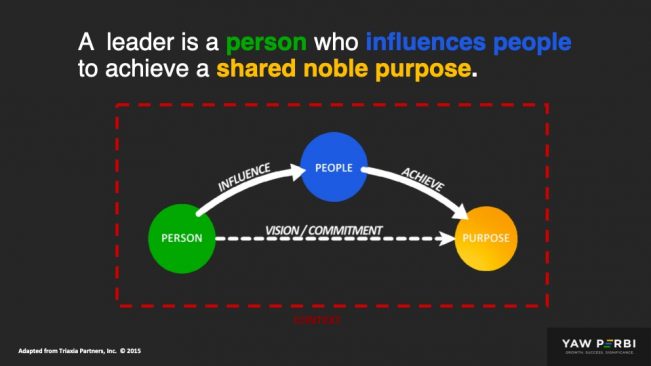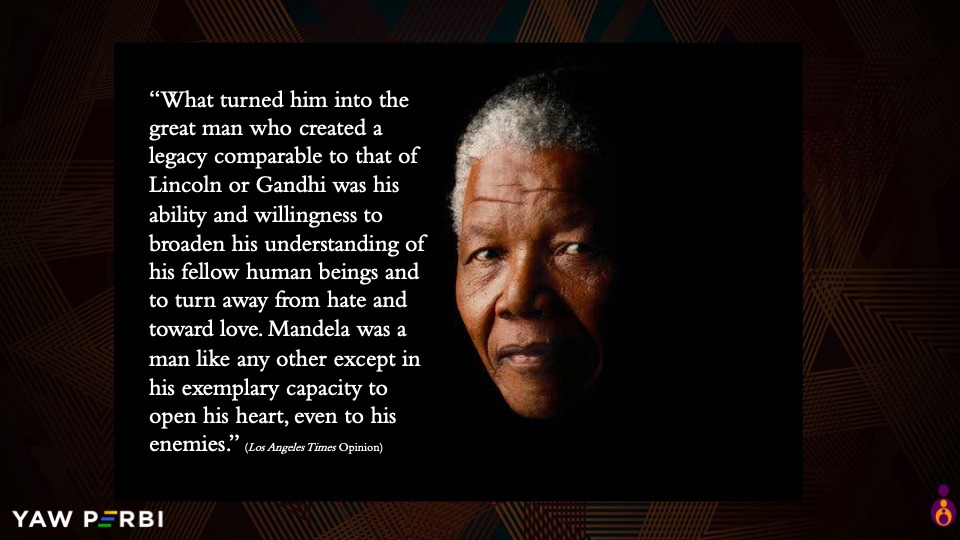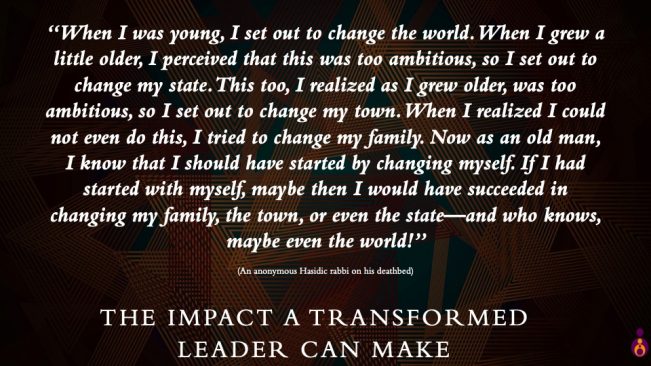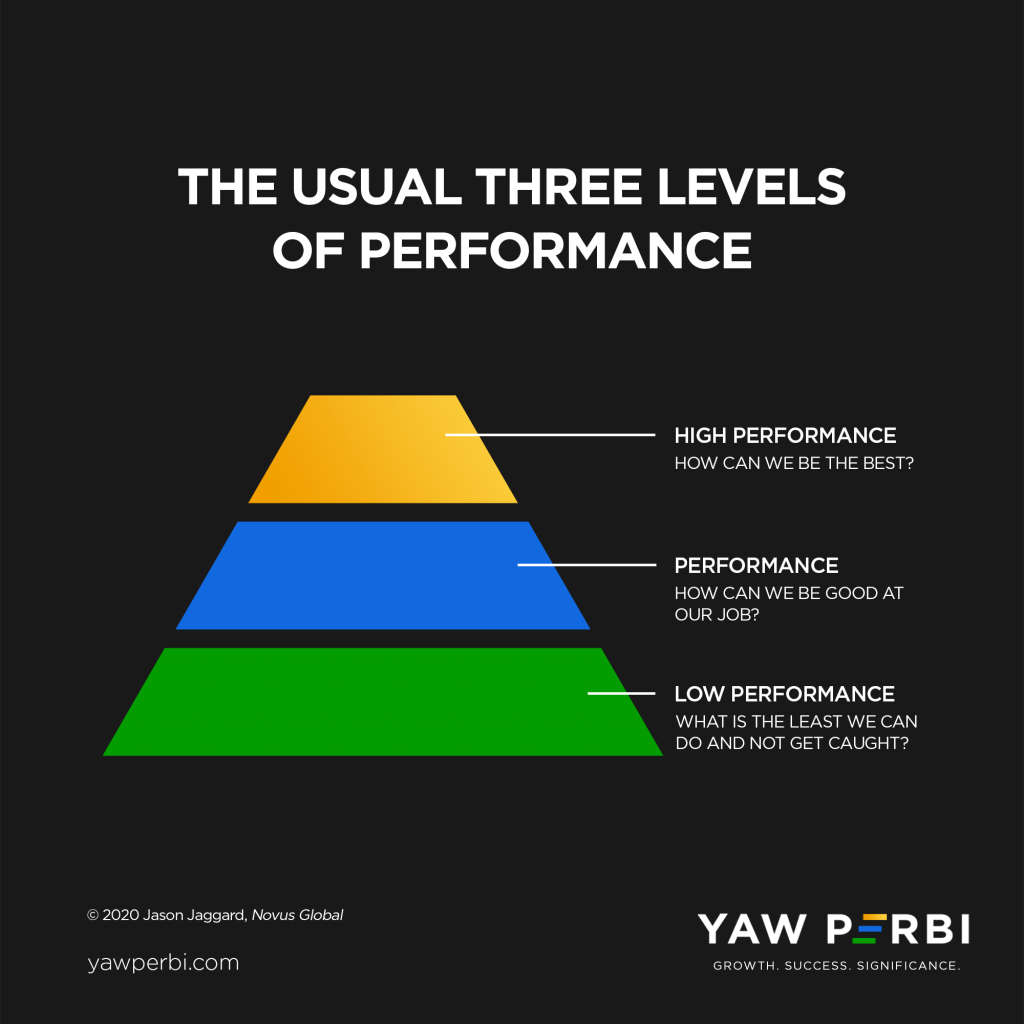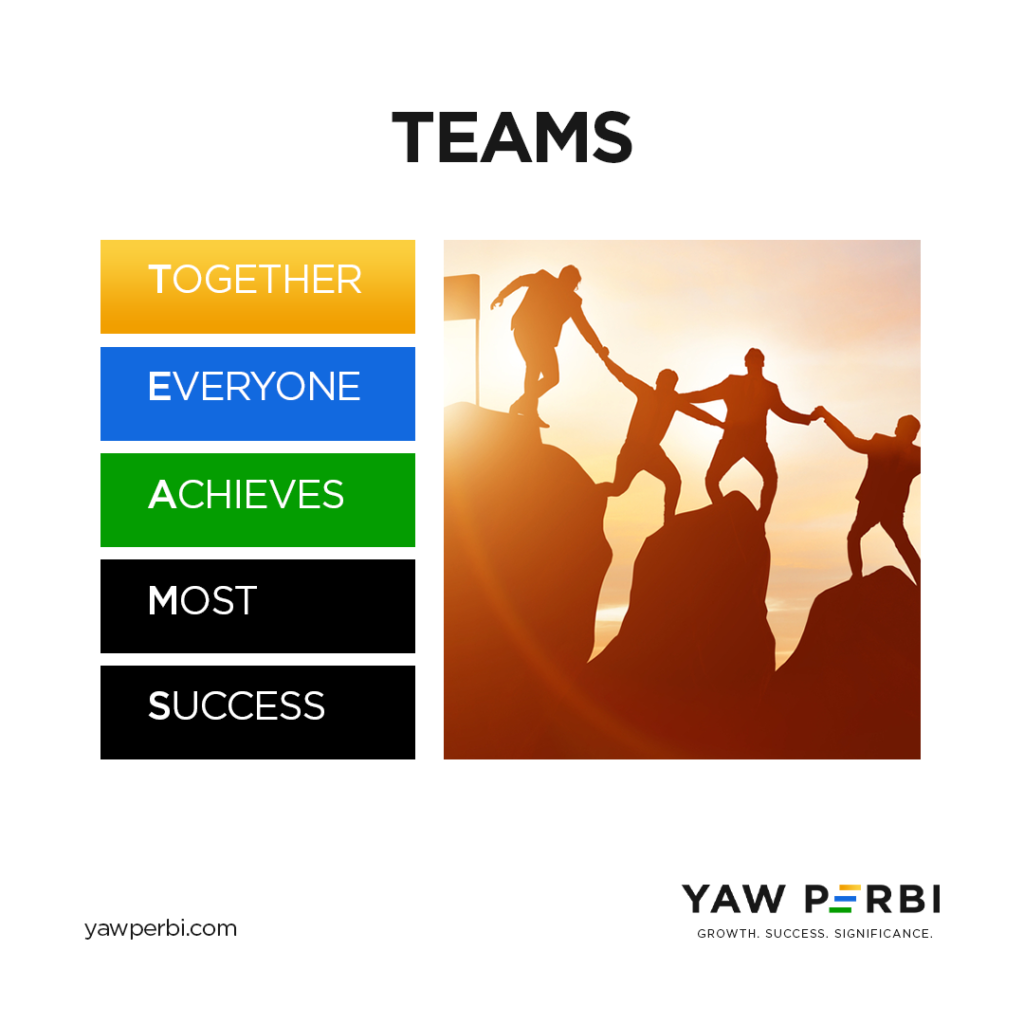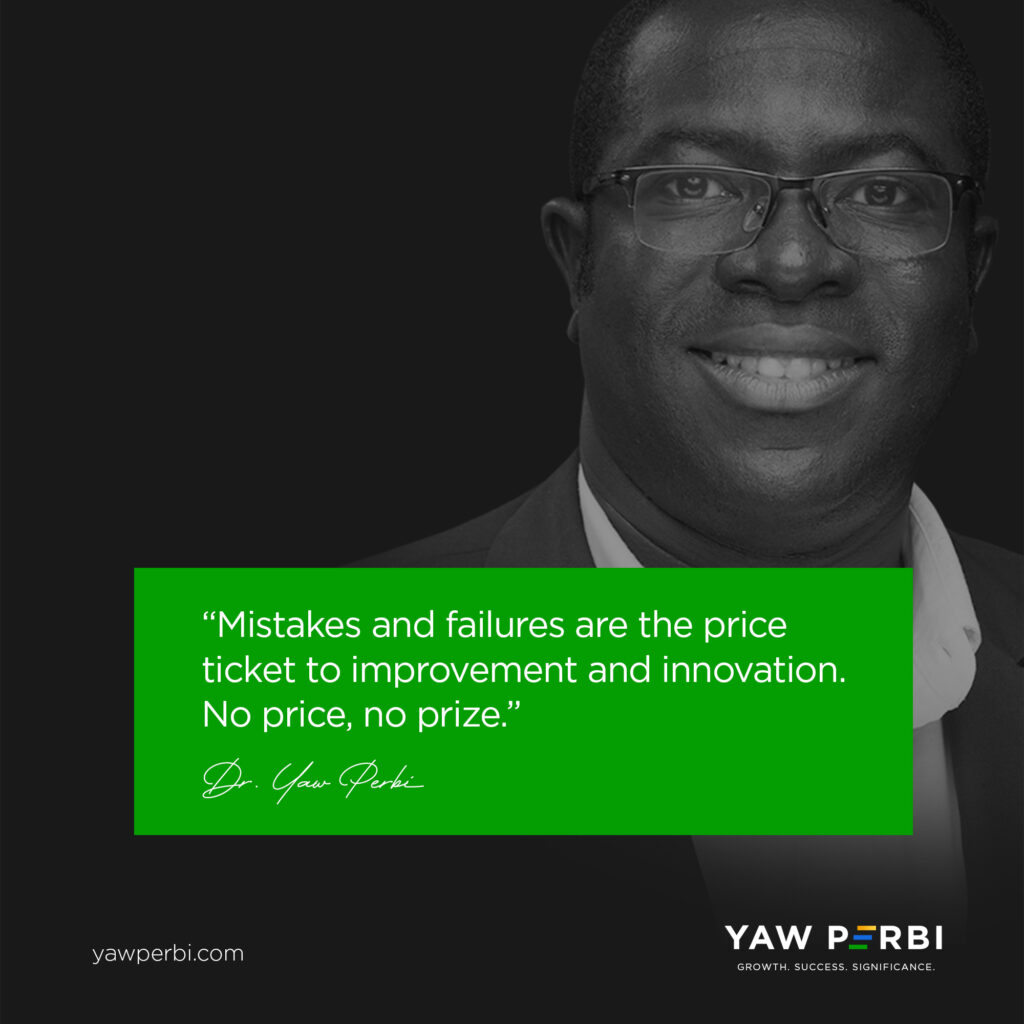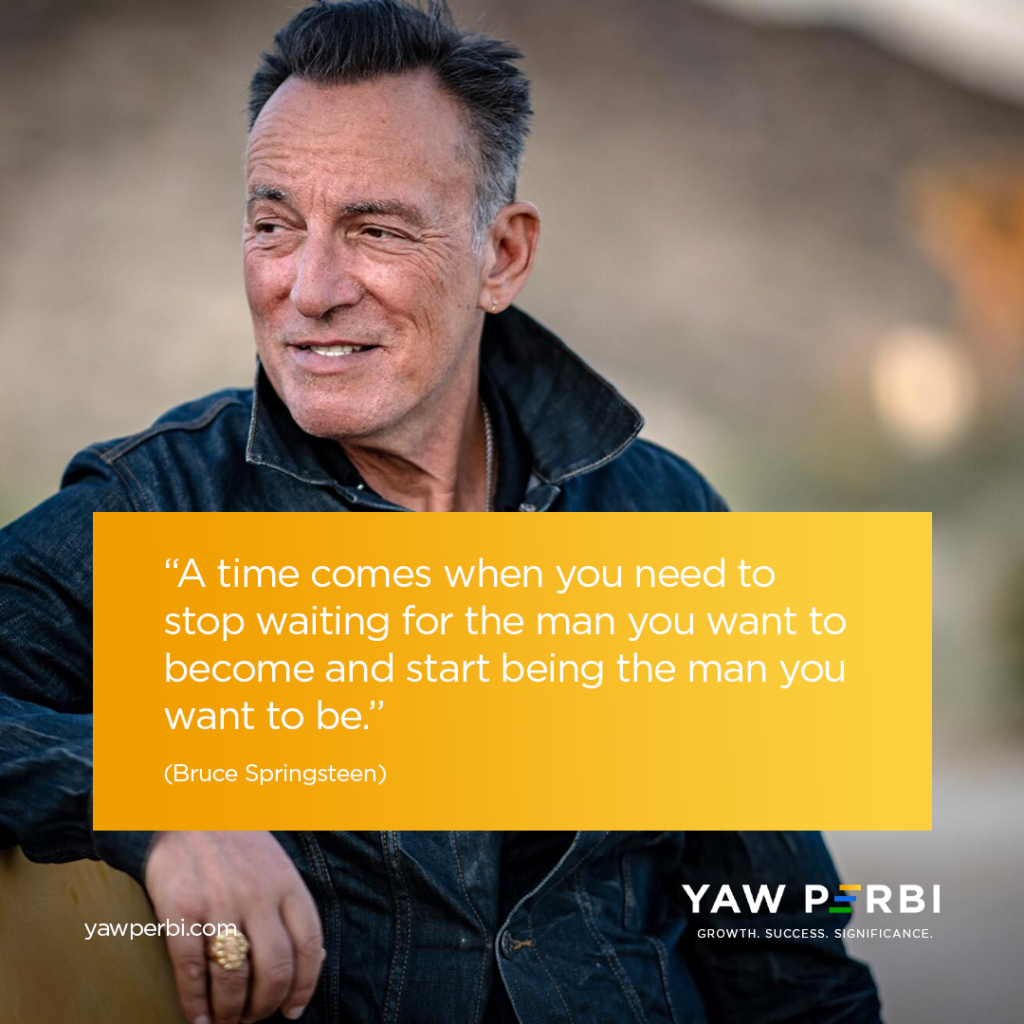
Relax. Religion isn’t going anywhere.

Although Pew’s projection of the Christian numbers is disputed by many, like the Center for the Study of Global Christianity (that it should be much higher)), the point being made in this article is still clear: the majority of the world has and will continue to be religious.
I’m very excited to begin my doctorate in global leadership this week. Having been a student of leadership for the last 25 years plus and acquired a Master’s degree in it a few years ago, I’ve felt it’s time to do the whole nine yards, not so much for the title (after all I’m already a doctor) but to go deeper and be even better-seasoned in my darling subject (or is it object?).
In going this doctorate route, I opted for a seminary environment because faith matters immensely to me, and indeed to the majority people in the world. The increased secularization of a formerly mainly ‘Christian’ Europe and certain sections of American society seems like an overwhelming flood to many only because it is a sharp deviation from the not-so-distant past when there was hardly any division between church and state; but also because the West disproportionately fills the media space. Only last week the German national broadcaster shared that a recent poll showed “most Germans find religion unimportant.” Yet the fact remains that the majority of the world has and practices a faith of sorts. In 2025, 90% of the world will be religious, my friends who run Operation World say; and by 2050, at least 87% of the world will still be religious, according to Pew Research.
The mid-twentieth-century secularization theory—that an increase in modernity means a decrease in religion— has been largely debunked by the likes of Berger (2014). According to Todd Johnson, who I just exchanged emails with, an astute associate professor of Global Christianity and Co-Director of the Center for the Study of Global Christianity at Gordon-Conwell Theological Seminary, “Despite increased modernity the world has in fact become more religious; 80.8% of the global population self-identified with a religion in 1970, rising to 88.1% in 2010 and with a projected increase to 91.5% by 2050,” higher than Pew’s projected 87% cited in the previous paragraph! Even the ‘unaffiliated’ doesn’t mean they aren’t religious; it often means they choose not to be identified with any ‘institutionalized’ religion. Just as humans have a physical, social and mental components that cannot be denied, so is there a spiritual capacity that we cannot run away from. French mathematician and philosopher Blaise Pascal put it succinctly, “There is a God-shaped vacuum in the heart of each man which cannot be satisfied by any created thing but only by God the Creator,” and in his experience and exposure, “by God the creator made know through Jesus Christ.”
By the way, I use the world ‘religion’ generally (and maybe even generously) because as an insider of the Christian faith I wouldn’t call Christianity a religion per se. Religion connotes man in search of God while in the Christian faith it is actually God in search of man. Not only that, religion tends to paint a picture of rigorous rules and rituals while true Christianity is more of a relationship with the Divine than a set of rituals or rules per se. That being said, for the purpose of this article faith, spirituality, divine relationship and religion are all being treated as ‘religion.’
FAITH AND WORK, FAITH @ WORK
Without God, and my faith in Him, I do not have a reason for being, a raison d’être. Neither do I have sustainable passion for my doings because all of it feels like, in the words of the wisest and wealthiest monarch ever, “vanity of vanity, it’s all vanity.” I have observed with grave concern the increasing divorce of faith from the work space, treating it like the plague or some highly contagious disease. Even on work-centric social media like LinkedIn, one cannot help but get the feeling that the mention of God in posts ‘spoils the atmosphere,’ which is riddled with human achievements, of brain and brawn (mainly the former), simply singing of how great we are.
But statistically, 90% and over of the people on LinkedIn are religious. There are myriads like me who know we wouldn’t be as excellent professionally but for our faith. Meanwhile, all who have an active religious affiliation yet act at work as if they have no faith are walking on the dangerous ground of inauthenticity. It is not integrous to want to, or have to, hide such an important part of one’s life as spirituality or faith in a space that easily takes up a third to half of our waking hours: work!
This week, a Muslim mate of mine from medical school, now a neurosurgeon, posted on our year group’s WhatsApp platform a screenshot of a heartfelt social media post someone had made about Dr. Aba Folson, one of our Christian colleagues who is now a cardiologist. This person who made the post, a nurse, starts by saying, “I have been blessed in my journey in the Nursing/Healthcare space to be working with amazing, highly religious health workers. One of such awesome ladies is Dr Aba Folson. She is a Cardiologist.”
She goes on to describe “her humility, assertiveness, excellence and brilliance” and how Aba has “broken protocols to help save my very critically ill patients.” The protocols she speaks of, I believe, were put in place to save patients in the first place, but there are situations where one has to do the unusual and even unconventional at great risk, which separates humans from machines and even artificial intelligence. The wisdom and courage to make such calls, Dr. Folson will say, I know for sure, comes from above. The writer of the text seems to be enamoured by the fact that Aba is “an astute Christian and sings in the choir.”
ALL WE NEED IS RESPECT
I still remember zooming down the corridor between the ER and the blood bank to fetch blood for a critically ill child. This was during my days as a medical officer at the 37 Military Hospital in Accra. We usually had junior staff who would do that but no, this young doctor run in his white coat. The child’s mother gathered the energy to attempt to run alongside me. Barely catching up and hardly catching her breath she managed to say these words, which I shall never forget, “Doctor, doctor I can tell you are a Christian.” She must’ve known that for a Christ-follower the Pauline admonition about work is clear and strong: “Whatever you do, work at it with all your heart, as working for the Lord, not for human masters.”
What is needed, indeed all that is needed, is for respectful co-existence in a pluralistic workplace, which is a microcosm of a really pluralistic world. The fight for diversity and inclusion in the workplace must not, and indeed cannot, be limited to ethnicity, age, gender, (dis)ability and such alone but faith as well. The majority of us wouldn’t be present at work with purpose and perform with passion and excellence without it, and none of us will be authentic in the workplace pretending we didn’t have it.
Faith works. Let your religion work at work—faith, love and hope at work. Your faith should make you a better professional; not worse. If your faith doesn’t make you better at work—which is all about service to humankind made in the image and likeness of God—it’s not worth following. Change it. Let’s see faith at work working, doing good works that bring God glory and bring about the good society—that’s the way it ought to be.
Post Script.
Right after I posted this blog, I came across a photo and headline on LinkedIn that said, “South African doctor: Professor “Mashudu Tshifularo” just became the first surgeon on earth to successfully perform surgery [with 3D technology] to cure deafness. He is also a pastor.” Ahem. Point nailed!
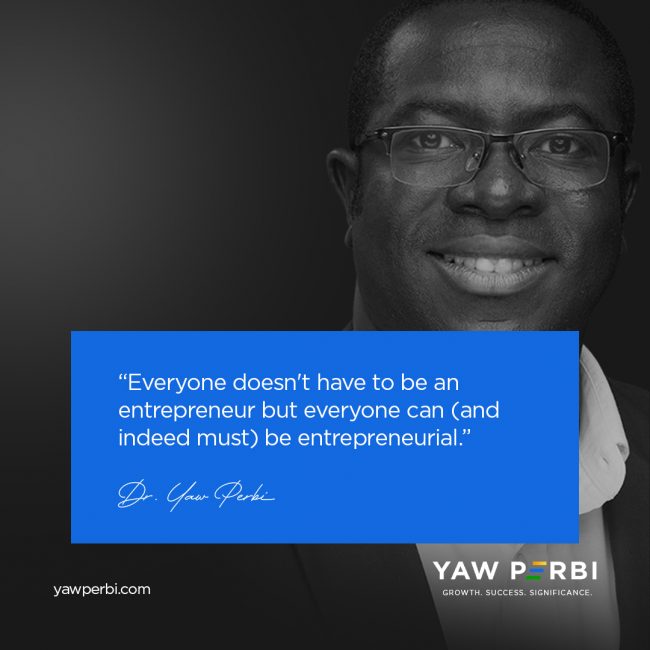
WANTED: Intrapreneurs!

A YP presentation to the two dozen Perbi Cubs staff gathered for orientation and training at a hotel in Accra.
Have you ever come across a ‘WANTED’ notice? Have you ever been on one? People can be wanted for good and bad reasons. Today, I’m here to share a WANTED notice with you on behalf of several business owners I get to coach and on my own behalf as a serial entrepreneur, WANTED: INTRAPRENEURS!
This was my passionate call during the final day of a whole week’s orientation and training of two dozen staff of Perbi Cubs Library Services, an evidence-based, cost-effective, literacy-promoting endeavour co-founded by my wife Anyele Perbi and I. This social enterprise has grown to serve 2,000 children in 200 schools and is set to scale some 10 times in the coming new school season (Deo volente) as a result of an innovative digital online library solution we’re partnering with various leading schools to roll out. The ‘problem’ of Covid-19 presented this entrepreneurial opportunity. I challenged our employees to become intrepreneurs. Here’s why.
WHAT’S IN A NAME?
First of all who is an entrepreneur? An entrepreneur is simply a person who sets up a business or businesses, taking on financial risks in the hope of profit. Investopedia offers an expanded definition of this as follows: “An entrepreneur is an individual who creates a new business, bearing most of the risks and enjoying most of the rewards. The process of setting up a business is known as entrepreneurship. The entrepreneur is commonly seen as an innovator, a source of new ideas, goods, services, and business/or procedures.” My definition is as simple as this: an entrepreneur is a problem-solver for profit.
Entrepreneurship is certainly not a job, it’s not even a profession or career; it’s a mindset and lifestyle. It is a mindset and lifestyle of taking ownership and risk to innovatively solve problems for profit. Hence employees who think and act like entrepreneurs are called intrapreneurs.
Intrapreneurs are employees who behave like Entrepreneurs. They have a work attitude and style that integrates response-ability, risk-taking, ownership, innovation (ROI). I like the acronym ROI because intrapreneurs really provide the best Return on Investment for their employers, business owners and indeed all stakeholders. The first written use of the term ‘intrapreneur’ appeared in a 1978 paper by Gifford and Elizabeth Pinchot entitled Intra-Corporate Entrepreneurship but prior to that the poster child for intrapreneurship had been Art Fry of the 3M company, four years before (I shall summarize his story shortly). The Pinchots’ first book, Intrapreneuring: Why You Don’t Have to Leave the Corporation to Become an Entrepreneur (1985), presented an expansion of the intrapreneurship concept where they defined intrapreneurs as “dreamers who do. Those who take responsibility for creating an innovation of any kind within an organization.”
Here’s a more elaborate definition of Intrapreneurs by Jordan Daykin in Forbes magazine: “A team of competitive, confident individuals who are committed to innovation, passionate about work and producing higher value for their employer [indeed, all stakeholders]. They will need to have an entrepreneurial spirit, be activators of ideas and have a willingness to take calculated risks. In return for their desire to help the growth of the company over financial reward, they will receive support and resources to help make their ideas a reality.”
ART FRY THE INTRAPRENEURSHIP POSTER CHILD
Today, it’s hard to avoid 3M products, especially those sticky notes of theirs. The company is worth $5 billion with a recurring spot on the enviable Fortune 500 list but what most people don’t know is that its success is largely one of the power of intrapreneurship. In 1968, a 3M engineering employee called Art Fry attended a seminar given by another 3M scientist, Spencer Silver, on a unique adhesive the latter had developed. This innovation had an unusual molecular structure that gave it the unique characteristic of being strong enough to cling to objects but weak enough to allow for only a temporary, non-damaging bond. It is reported that the scientific community didn’t take Silver seriously and he himself was still searching for a marketable use of his invention.
As the legend goes, Fry sang in his church choir on nights, and he used slips of paper to mark the pages of his workbook. When the book was opened, however, the makeshift bookmarks often moved around or fell out altogether defeating the whole point. On a Sunday in 1973, it occurred to him that Dr. Silver’s adhesive could be put to use in creating a better bookmark. If it could be coated on paper, Silver’s adhesive would hold a bookmark in place without damaging the page on which it was placed. Being the intrapreneur that he was, the next day, Fry requested a sample of the adhesive and began experimenting with it, coating only one edge of the paper so that the portion extending from a book would not be sticky. Fry experimented with writing notes to his boss, which broadened his original concept into the innovative Post-it Note product.
In 1978, 3M marketed the sticky notes under the name “Press ‘n Peel.” Two years later, after sampling in 11 states across the country, 3M officially released the first Post-it Notes. They were a massive success right away, resulting in over $2 million in sales after only a year on the marketplace.
IF YOU DO GOOD…
The company 3M isn’t the sole beneficiary of Fry’s intrapreneurship. Time and space wouldn’t allow me to list all the accolades and achievements of Art Fry as a result of his intrapreneurship. As the saying goes, “If you do good, you do it for yourself, really.” Things have a way of coming back to us, don’t they? What we sow, we reap. In return for their desire to help the growth of the company over financial reward, not only do entrepreneurs “receive support and resources to help make their ideas a reality” (as Daykin says above and the Fry-3M story shows), they also obtain skills for their own concurrent or future enterprises, they can expect that others would treat them and their businesses the way they treated another’s. Intrapreneurs are singled out for extraordinary opportunities (I’ve done that for several people) and can always come back for referrals and recommendations from their managers/leaders/business owners. Above all, if you do good, you do it not only for yourself but also for your God. Then His kingdom will come more fully on earth as it is in Heaven.
“THIS IS MY FATHER’S WORLD”
The Good Book exhorts all and sundry, “Whatever you do, work at it with all your heart, as working for the Lord, not for human masters.” That is more than stewardship, I think. That is ownership right there. Taking ownership of the work one does not because they are owner per se, but because their Father in Heaven owns all things. “For everything comes from him and exists by his power and is intended for his glory. All glory to him forever! Amen.”
Sadly, I’ve heard people in Ghana who should know better, questioning a diligent and passionate worker taking risk and ownership and being innovative, an intrapreneur, as follows: “Adɛn? Adwuma no ɛyɛ wo papa dea?” To wit, “Why this hard work? Is this enterprise/organization your father’s?” The answer is supposed to be an apparent “no” but what if everyone of us who calls God “Father” responds, “Ampa! ɛyɛ me papa dea!” Meaning, “Yes! Of course! It is my Father’s. This is my Father’s world.”
LET’S DO THIS!
I wish everyone was an entrepreneur like my wife and me since there are enough problems to be solved in our world and profit to be made as a reward. Besides, I encourage people to separate their profession from their business, meaning, the fact that they have some employment or career does not exclude them from owning a side business for multiple streams of income (as long as you’re doing excellently well in your regular job and not robbing Peter to pay Paul). But the reality is that not everyone will be a business owner. Indeed, everyone doesn’t have to be an entrepreneur but everyone can (and must) be entrepreneurial, especially as an intrapreneur.
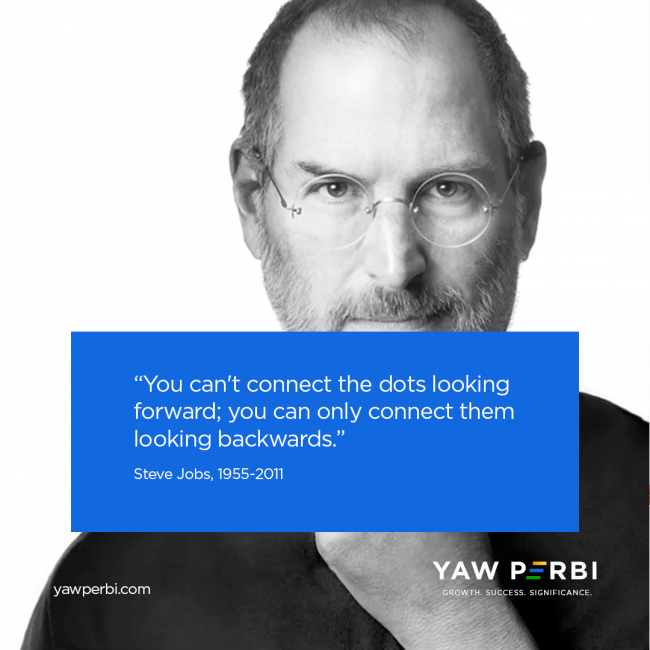
Life is lived forwards but understood backwards
Life is lived forwards but understood backwards. That sounds very much like one of those witty sayings from my bank of African proverbs but the person I read that from first was the Danish philosopher Søren Kierkegaard. In his own mother tongue “Livet skal forstaas baglaens, men leves forlaens,” translates into “Life can only be understood backwards; but it must be lived forwards.”
In a recent conversation with my brother and friend of nearly two decades, Rev. Albert Ocran, he prophetically said to me without butting an eyelid that when he looks at my entire life it can be distilled into one word: leadership, to which I replied with my head bopping like an agama lizard, “That is true, you are right!” (By the way I have given him the title, “Thought Distiller.” He’s doing a wonderful job distilling the life lessons of several leaders in society for the general public on his Springboard Road Show.) Albert is one of the few who ‘gets’ my life, probably because he is an ardent believer in something he himself calls “convergence.”
I have been accused by some of living a scattered life (“all over the place”) while others have expressed concern I might not make much of a dent in the universe (impact) because of how spread my life has been (and continues to be?). I have been a medical doctor, award-winning speaker, punching preacher, best-selling author, publisher, military officer, U.N. peacekeeper, cross-cultural pastor, serial entrepreneur from media to real estate to education, president & CEO, television presenter, financial advisor, investment consultant, founder of many things, corporate trainer, life and executive coach, inspirational teacher, lived in three countries over the last dozen years and served in 45 … So who are you, what are you? people wonder. Although I owe no one an explanation except the One who gave me life, permit me to share two pivotal paradigms, nay convictions, with you.
(1) META-PERFORMANCE–Milking Your Full Potential
First of all, there is the notion of meta-performance. Many of us never explore or exploit our full potential because we get stuck in being the best at something in comparison with others, rather than constantly exploring the question, “What am I capable of?” There is no reason to be stuck in a hospital because I was trained as a medic when I have the ability to author books as well, something the majority of my med school mates may not have the aptitude for. Shall I therefore not write because other doctors cannot? I resolved when I was but a youth, as entrenched it in my personal mission statement, to “die empty.” To die having utilized and exhausted every gift in me, but now I add, “within my God-given limits.” After all, like you I have only one life to live and have only 24 hours in each day. Besides, with a wife and seven children, family is a blessing which comes with its own limits as well.
Suffice it to say I encourage the youth in particular to spend their first 30-35 years at least, exploring and exploring and exploring until they finally hit oil. Don’t forget the parable of the talents: one was given five, another three, and a third servant, one, each according to their ability. Why should the chap with five compare himself with the person with one and underperform? As has been wisely said, the talents we have are God’s gift to us; what we do with them is our gift back to God. Meta-perform!
(2) CONVERGENCE–Connecting the Dots
But I digress, which is funny because the point I want to make next is about (a word that Albert loves): CONVERGENCE. We all must get to a point in our lives when we can look back and connect the dots, and see that all these seemingly scattered and unrelated aspects of our lives, including the lows and the pains, can all really come together to make one huge statement and result in an integrated life. The reason Kierkegaard’s words speak profoundly to me is that when I reflect on my seeming scatteredness, when I look backwards, I see that the many different-coloured strands have a common thread: leadership. That is why I doff my hat to Albert for being so spot on. I have not been called to be a medical doctor or military officer or media man or investment guru per se but a leader in every sphere I’ve been given talent and opportunity in. Is leadership a career? If it is then, then that’s mine. If it isn’t then I do not have a career.
The late Apple founder Steve Jobs put this Kierkegaard philosophy of looking backwards and Albert Ocran’s love of convergence into a very powerful statement: “Again, you can’t connect the dots looking forward; you can only connect them looking backwards. So you have to trust that the dots will somehow connect in your future. You have to trust in something—your gut, destiny, life, karma, whatever. This approach has never let me down, and it has made all the difference in my life.”
BACK TO THE FUTURE
This issue speaks to a powerful leadership practice we must all have: reflection. Reflection, really, is the rhythm of leadership. There is no understanding without reflection. Unless we lead from a place of pause, we will not be able to distill the lessons in life. Not only will we miss out on ourselves, others and even life itself but also our lives and leadership will be shallow. Take it from a guy who is almost always busy running around and has been described by my nonagenarian mentor in Britain as peripatetic. I’m learning more and more to be in solitude and silence, otherwise there is no understanding of the life lived or the thrill of the act of connecting the dots. I would wish that we all, like Aleksandr Solzhenitsyn, can say after our own backwards reflection, “later the true significance of what happened would inevitably become clear to me, and I would be numb with surprise.”
The fuller philosophy of Kierkegaard is this: “It is really true what philosophy tells us, that life must be understood backwards. But with this, one forgets the second proposition, that it must be lived forwards. A proposition which, the more it is subjected to careful thought, the more it ends up concluding precisely that life at any given moment cannot really ever be fully understood; exactly because there is no single moment where time stops completely in order for me to take position [to do this]: going backwards.” Don’t keep looking only in the rearview mirror, that’s not where you’re going. But surely do look into it momentarily from time to time for the wherewithal to live and lead forwards with meaning. Life is lived forwards but understood backwards.

You Don’t Know What You’re Missing!

An August 2021 training for the Certified Professional Coach designation as a collaboration between Yaw Perbi (YP) Executive Education company and Wainright Global. We represented several U.S. states (from coast to coast), Canada, England, Ghana, Kenya, Romania, Rwanda and Uganda.
Growing up, my father was an ardent follower of the gospel singer André Crouch. Consequently I got indoctrinated early, hearing these songs from vinyl records at home and cassette tapes in the car. One of Crouch’s Christian apologetic songs that still rings in my mind today boldly claimed, “You don’t know what you’re missing until you’ve met the Lord!” Having met the Lord myself, I concur. But today, let me share what else you don’t know you’re missing.
I would really love to talk to you about the power of coaching. I say you don’t know what you’re missing because in my experience, most people don’t grasp the power of coaching, no matter how hard I try to explain the power of coaching to them until they have tasted it for themselves, even if it is a free 30-minute ‘chemistry session.’ It’s one of those you-don’t-know-what-you-don’t-know-until-you’ve-experienced-it kind of things. It really makes me to see the wisdom in sales strategies like the ones car salesmen employ, where they allow you to do a free test drive. As you sink into the comfort of those leather seats and cruise in that Mercedes, Range Rover or whatever, all of us a sudden you realize what you’ve been missing and that you really ‘needed’ this car, you just didn’t know it prior! (laughs)
MY BREAKTHROUGH
Until I got a coach myself, there were certain things like revising and expanding my old books that had stalled for ten years! All of a sudden, with the clarity that came from the socratic questioning and the power of accountability I got going, and have never turned back since. That was passive income and active impact I had been leaving on the table for a decade! This experience is one of the reasons I insist that even a coach needs a coach. Every leader needs a coach. In fact, every breathing human being needs a coach!
SISTER-SISTER
At Yaw Perbi (YP), C-level/C-suite executives are our strong suit. One of our earliest encouragements in our coaching practice was when a Vice President of a significant global mining firm who had been cautiously optimistic about coaching signed up to try it for six months. By her first couple of sessions she was enjoying the benefits of coaching–the inspiration, clarity of thought, transformation, skills, resources, accountability etc.–so much that she offered to give her best friend, an engineer with a multilateral organization, a birthday gift of a six-month coaching package from YP.
While I wait to share their powerful testimonials with you via video powerful 1-2 minute videos, here is a short and impressive one-minute video of Dr. Chinweike Eseonu, a Nigerian coaching client resident in the United States. This former professor of engineering at Oregon State University met his 12-month coaching goal in half the time, through our coaching! Again, his too was a six-month gift from his sister, a medical doctor in the States. Chinweike and another coaching client in the United States have both met their coaching outcome to find new jobs that they are passionate about and which pay them much better. In fact, the other coaching client has had a 51% pay raise in her new offer, which also affords her an opportunity to move from her current state of Texas to Wisconsin, away from a lot of bad memories from a hard divorce.
HELP US HELP PEOPLE KNOW WHAT THEY’RE MISSING
Friend, if you’re not being coached, you are missing out a lot! Get coached today! One of the things we want to ensure does not become an excuse is, “well, there are not enough good, certified coaches around.” Also others like, “I cannot find one I have good chemistry with” or “there’s none within my budget.”
At our executive education company, we are on a coaching revolution to see every leader being helped to authentically live and optimally make decisions by training and certifying 60 Certified Professional Coaches (CPC) between August and December who will then impact another 700-800 leaders by the end of the year.
So apart from getting coached yourself, if you are someone who loves people, loves to see people develop, if you have the patience to listen to others without judgment and create a safe space where through your powerful, socratic follow-up questioning they can clarify their thoughts and desires regarding their lives and goals and provide the accountability for follow-through, then why not get trained and certified to help others in this way? It is a great way to make impact and income simultaneously.
The are people waiting for you to help them, from ‘the least of these’ to the highest flying leaders. Every leader needs a coach, and I’m proud to be part of the biggest network of coaches in Africa, Breakfast Club Africa, with the big dream that one day every African president will have a coach. The continent will not be same; you won’t recognize the African continent because not only will these leaders be supported to make optimal decisions and to be authentic leaders, they would have the framework for voluntary accountability to deliver what they have said to themselves (let alone to the masses) that they want to accomplish.
Below is the information for the next round of training and certification on September 25 & 26, 2021. Join the revolution! Register now, here.

What #FixTheCountry and #FixYourself Both Got Wrong
Earlier this year, my homeland Ghana was in the news again, trending on social media for all the wrong reasons. Citizens were tired of apparently failed campaign promises and mounting socioeconomic challenges from illegal mining destroying our ecology to pot holes, no, man holes, in our streets. All of these complaints were bundled together in a #FixTheCountry campaign that made a dent in Twittersphere. Some ill-advised government sympathizers then began a #FixYourself counter-tweet, which only added insult to injury. A much more compassionate and smarter response, which might’ve calmed nerves, would’ve been #LetUsFixItTogether but be that as it may, as a student of leadership let me show you how both sides got it wrong in the first place.
LEADER DEFINED
There are officially over 360 definitions of leadership. The simplest yet most profound one that makes the point I seek is this: a leader is a Person who influences People to achieve a shared noble Purpose. Although there are three ‘P’ players in this equation, the tendency for most, and not just Ghanaians, is to focus on the third ‘P’ (Purpose), in this case the country that needs fixing. That makes sense because it is often what pinches and the thing we would’ve been sweet-talked about during the animated political campaigning prior to elections. So the citizenry said #FixThePurpose and what some government functionaries did was to then shift what needed fixing to the second ‘P,’ the people i.e. #FixThePeople.
As I prepared to speak to alumni of the Central Leadership Programme a couple of weeks ago on ‘The Impact a Transformed Leader Can Make‘ it dawned upon me heavily that while both sides of the hashtags might bee sincere, they are both sincerely wrong. The most important ‘P’ that fixes the other two ‘Ps’ is the Person of a leader! We can cry #FixTheCountry all year long and hear a minor counter-chorus of #FixYourself all year round but until the primary hashtag and passionate focus becomes #FixTheLeaders, it’s all a waste of time, energy and a whole lot of other scarce resources!
PRINCIPLES AT WORK
You might not like what I’m saying, or even not believe in it, but the thing with principles is that they are timeless, universal truths that don’t care a hoot what you and I value. As the famous director of the 1956 epic movie The Ten Commandments said, we cannot break commandments, we can only break ourselves against them. Until our leaders are transformed, the people will not be transformed, neither will the situations that need transformation. In other words, until and unless the leaders are fixed, the people will not be fixed and the problems will not be fixed. It doesn’t matter how sincere and passionate we are about the latter two, we would ironically only be breaking ourselves against leadership principles, rather than fixing anything.
In transformational leadership, the following principles hold true:
Principle #1: Transformational Leaders are transformed first, then their community (from family to town/city to district to region to country and continent)
Principle #2: The Person (of a Leader) gets fixed first, then the People, before the Purpose
Principle #3: Only deeply transformed leaders can deeply transform society.
PORTRAITS OF THE POINT
In my talk, I shared examples of the impact transformed leaders have had on society, irrespective of the era, whether 2,000 years ago like Zacchaeus, 200 years ago like William Wilberforce or barely 20 years ago like Nelson Mandela. When Zacchaeus, the short and filthy rich chief tax collector, encountered the rabbi Jesus Christ, he was transformed. That’s what led to his unforced famous declaration: “Look, Lord! Here and now I give half of my possessions to the poor, and if I have cheated anybody out of anything, I will pay back four times the amount.”
What do you suppose was Zacchaeus’ impact as a transformed tax leader (say, as the head of the Ghana Revenue Authority)? If every African politician since 1957 said and did similarly, not only will we hardly have the poor amongst us, our socioeconomic indicators will drastically improve overnight as Swiss banks and vaults are emptied swiftly! That’s the impact a transformed leader (#FixedLeader) can make in transforming a people and a context. This brings to the freedom two more faith-based transformational principles: #4 No one can truly encounter the transformational Jesus and not be transformed and #5 No one can be truly transformed by the transformational Jesus and not transform society.
These principles are again exhibited in the modern story of William Wilberforce and the contemporary biography of Nelson Mandela. You might want to check out the video of the said talk to appreciate how the transformative societal impact of both, also came from the fountain of their personal transformation as leaders. For Mandela, see the quote below that summarizes well his transformation and transformative leadership:
Former South African President Thabo Mbeki, who stepped into the big shoes of Mandela, makes the point for me about fixing leaders first to get the product in society we want in this video. He challenges incumbent African presidents as follows: for whatever kind of Africa we want, the question is, “what sort of leadership do you produce to get that kind of result?”
It’s easy to be impressed by Wilberforce’s purpose, which he influenced thousands to share in: ““God almighty has set before me two great objects: the abolition of the slave trade and the reformation of manners.” But what you might not know is that his wasn’t always a noble story. Although young and gifted, his biographer Eric Metaxas wondered, “But to what would he rise? For beyond making it to Parliament and succeeding there …he had no dreams. He was ambitious and he was talented, but he was also directionless.” Years later Wilberforce himself remarked, “The first years I was in Parliament I did nothing—nothing to any purpose. My own distinction was my darling object.” What changed everything and began a life-long pursuit of the abolition of the slave trade and emancipation was how all that pre-occupation with himself, his status and ‘success’ began to change in 1784 (at 25) when he started to explore the religious faith of his youth. Again, the transformed Person he became, influenced a People to transform, and together they transformed and reformed the world!
CONCLUSION
Citizens are powerful. “Power to the people,” was the mantra in the revolutionary days of the 1980s in Ghana. I was a only a lad but I still remember. And it is true. But leadership is incredibly important, as everything rises and falls on it. True, citizens (People) can use their thumbs to vote leaders (Persons) in and out of office and press their demands on them. True, citizens can campaign ad nauseam about the plights and dreams (Purpose) that matter. All I’m asking is that if principles are true and cannot be broken, then our strongest and loudest campaign should be #FixTheLeaders. If we do, the people will be fixed (#FixYourself) and so will the country (#FixTheCountry). There’s no other way around this. If we do not go this route, come 100 years from now, those two #FixTheCountry and #FixYourself hashtags will still be trending. We would only have have successfully recycled unfixed leaders of fixed colours every four years while the country itself remains unfixed. Leaders must fix themselves first, then serve and influence the people to be fixed and together, fix the country.
PS.
As someone with an advanced degree in leadership and being a leadership practitioner across various industries and on every continent, I do reckon that this issue is nuanced. It takes an entire ‘leadership ecosystem’ and multi-dimensional, multi-directional processes. Yes, I agree there has to be 360 degree leadership. We can play around with all the possible permutations there are but we fool ourselves without this primary transformed/transformational leader —> transforming people —> transformed society piece. It is akin to what will be referred to in Chemistry as ‘the rate determining step.’ If that (#FixTheLeaders) doesn’t happen and in ample time and measure, we will still be arguing about #FixTheCountry and #FixYourself 100 years hence. We’re in a fix (pun intended).

“Can You Go Beyond High Performance?”
“Can you go beyond high performance?” That’s a penetrating question Jason Jaggard, founder and CEO of the executive coaching firm Novus Global, asks in his powerful and popular article that bears that title. My good friend and StrengthsFinder coach, Dan Leffelaar, who is COO and partner at Novus Global, had exposed me to the company after he joined. Later he would introduce me to one of their very competent coaches, Joseph Thompson. It was Joseph who then drew my attention to this article even before we would have our first formal coaching session. By the way, I’ve said it before and it’s worth repeating, never hire a coach who doesn’t have a coach!
DIFFERENTIATION–OR WHATEVER YOU CALL IT
It is not uncommon for managers to categorize workers in the marketplace into three: low performers, performers and high performers. Over a decade ago, I remember reading about this idea from long time General Electric CEO Jack Welch’s book Winning. He called it differentiation, separating the sheep from the goats. According to Jack, differentiation is a process that requires managers to assess their employees and separate them into three categories in terms of top performance: top 20 percent, middle 70, and bottom 10. Then—and this is key—it requires managers to act on that distinction.
Whatever different percentages one uses to divide the three levels (and some just use the Pareto principle to divide the top 20% from the remaining 80%), the questions the people in each band ask themselves that result in their kind of performance are intriguing:
- Low Performers–“What is the least we can do to get by–and not get caught?”
- Performers–“How can we be good at our job?”
- High Performers–“How can we be the best?”
Often the morale of the story is “be the best,” be a high performer. Or, in the precious words of my dad’s alma mater (in Latin), Vel primus vel cum primis. To wit: either the first or with the first. But that is precisely the problem. High performers typically stop growing because they feel (or are made to feel) they are the best, or among the best, and have hit their peak when that is far from the truth! That’s the challenge of comparing ourselves to others instead of to our own potential. Don’t forget the saying that “in the land of the blind, the one-eyed man is king.” What is high performance about one eye just because everyone else you’re compared with is blind?
In fact, not only does Jason point out two common mistakes of high performers here but Novus Global as a practice firmly believes “attracting and retaining high-performers is a mistake and doing so creates a predictable set of problems.” You probably have met a lot of high performers who are still unhappy. Barring greed and envy, could Abraham Maslow’s observation be the cause? “If you plan on being anything less than you are capable of being, you will probably be unhappy all the days of your life.”
META-PERFORMANCE
So “can one go beyond high performance?” remains the question. “What comes after high performance?” I’m glad you asked. “If your team doesn’t have a clear and compelling answer to the question “What comes after high performance?” then you absolutely have an unnecessary cap on the possibilities of your leadership and the impact of your organization,” says Jason. The answer lies in a word he’s coined: meta-performance. And this is “meta” is not like “meta-data” but “meta” as in “metamorphosis,” like a caterpillar transforming into a butterfly. A meta-performer isn’t committed to being the best (“how dull,” Jason says)… a meta-performer is committed to constantly exploring capabilities.
Unlike “What is the least we can do to get by–and not get caught?” (Low Performers), “How can we be good at our job?” (Performers) or “How can we be the best?” (High Performers), Meta-Performers ask themselves, “What are we capable of?” That is a potent question in and of itself, but to process that with a competent and caring coach is even more powerful!
I often say to people, I may not have been the best of medical students (I was a low performer) but I was a very good doctor (high performer). But as good a doctor as I was, the question of what I was capable of sent me on a totally different trajectory from my peers, from authoring books and motivational speaking through military experience and peacekeeping with the United Nations, to pastoring, restarting life as a Canadian immigrant and becoming CEO of a number of non-medicine related ventures, some with a budget of a few million dollars.
Meta-performance is akin to what my mentor John C. Maxwell calls The Law of the Rubber Band: Growth Stops When You Lose the Tension Between Where You are and Where You Could Be. The meta-performance life happens somewhere between feeling ‘just right,’ taut enough to be best at tying things up, to tearing up because we fail to embrace our God-given limits. Often times, we are poor judgers of thse book ends, and having a discerning coach to assist on this journey is vital.
“IMPOSSIBLE” ACCORDING TO WHO?
In what area(s) of your life have you lost your stretch and settled? Create some specific means for stretching in these areas of your life. Go back to your 2021 goals and ensure they’re not only S.M.A.R.T. but that they also STRETCH. Remember, “Only a mediocre person is always at his best,” saysW. Somerset Maugham, putting things in a way that hits home, hard. “Ouch,” says the best performers.
Walt Disney used to say, “It’s kind of fun to do the impossible.” I know the feeling, a little bit. Nelson Mandela was right: “It always seems impossible until it’s done.” I find it not only a powerful meta-performance question to ask “What am I capable of?” but also in line with that to inquire, “What sort of person must I become to be capable of that?” Then with Almighty God’s help, “just do it,” do the “impossible.”

50 Shades of Coaching
Here is a list of about 50 kinds of coaching:
❖ Academic Coaching: Helping One Achieve Academic Excellence
❖ ADD/ADHD Coaching: To Understand the Most Common Learning Disorder – Attention Deficit Disorder / Attention Deficit Hyperactivity Disorder
❖ Alternative Lifestyle Coaching: To Get You Motivated, Strengthen Your Commitment and Re-align Your Goals
❖ Athlete Coaching: To Help Athletes Live a Balanced Life, Both Personally and Professionally
❖ Assessment Coaching: Walking Through Behavioral, Personality and Other Assessments Like the DISC
❖ Bereavement Coaching: Walking Through Painful Events with a Like Mind
❖ Business Coaching: Your Way to Business Success
❖ Career Coaching: Your Way to Fulfilling Your Financial Dreams
❖ Christian Life Coaching: Your Way to Emotional Maturity and Spiritual Fruitfulness
❖ College Entrance Coaching: Helping You Attend the School of your Dreams
❖ Communication Coaching: Opening Up the Link Between People
❖ Conflict Coaching: Working One on One to Achieve Balance
❖ Co-Parenting Coaching: Helping Divorced Parents Create a Positive, Workable Parenting Relationship
❖ Couples Coaching: Improving Communication Between Partners
❖ Creativity Coaching: Creative Struggle is Integral to the Life of the Artist
❖ Divine Purpose Coaching: To Re-Identify and Connect with One’s Centre
❖ Divorce Coaching: Helping People Transition to a New Life
❖ End of Life Coaching: Helping Those Left Behind
❖ Entrepreneur Coaching: For More Than Starting up a New Business
❖ Ethics Coaching: Living with Authenticity
❖ Executive Coaching: Moving the C-Suite On an Up to Take Your Team to the Next Level
❖ Family Coaching: Helping Families Work Through Difficult Issues
❖ Health and Wellness Coaching: Focusing on the Whole Being
❖ Holistic Health Coaching: Finding the Light at the End of the Tunnel and Balancing the Mind, Body and Spirit
❖ Laughter Coaching: To Bring More Lightness and Freedom
❖ Leadership Coaching: Putting You in the Right Direction to Chart the Course for Others
❖ Life Coaching: Your Way to Personal Success
❖ Men’s Empowerment Coaching: Helping Men Succeed with Excellence
❖ Military Transition Coaching: Helping You Adapt to Civilian Life
❖ Motivational Coaching: Helping One Achieve Personal Excellence
❖ Nature Coaching: Helping to Become One with Nature
❖ New Age Coaching: Self-help and New Thought Modalities
❖ Organizational Coaching: Clearing the Way to Clarity and Direction
❖ Parenting Coaching: Helping Parents Communicate and Understand their Children
❖ Pastoral Coaching: Coming Alongside Shepherds of God’s People
❖ Peer Coaching: Coaches Coaching Coaches
❖ Personal Development Coaching: Centers Around the Aspects of One’s Personal life
❖ Personal Finance Coaching: Your Way to Financial Freedom
❖ Physician Coaching: Helping Physicians Find a New Journey
❖ Recovery Coaching: Your Way to Recovering with Success
❖ Relationship Coaching: Building Personal and Professional Relationships
❖ Retirement Coaching: Transitioning to a New Life Stage
❖ Sales Coaching: Your Way to Increased Success and Profitability
❖ Self-Esteem Coaching: Helping People with Feelings of Value and Worth
❖ Singles Coaching: Helping Singles Find Healthy, Loving Relationships
❖ Special Needs Coaching: Helping Disabled Families and Individuals
❖ Spiritual Coaching: Helping People to Connect to the Divine
❖ Stress Management Coaching: Helping People Identify and Reduce Stress
❖ Success Coaching: Your Pathway to Personal and Professional Success
❖ Transitional Coaching: Helping People Through Big Life Changes
❖ Transpersonal Coaching: Finding Your Greatest Potential
❖ Weight Loss Coaching: Discovering New Healthy Lifestyles
❖ Women’s Empowerment Coaching: Encouraging Women to Embrace Their Talents
❖Youth Empowerment Coaching: Encouraging Young People to Discover and Fulfill Their Potential
This list is an adaptation of a list of 52 Life Coaching Niches Working Miracles Everyday by our coaching partner Barbara Wainright. You may go here to download a free copy of the book to discover which coaching niche is right for you!

The Little Cow
The first time I heard the story about the little cow, it was from the lips of a millionaire. Gathered in the conference room of some hotel in mid-town Montrèal, this man who had made his money from the financial services industry was urging us on to let go of our little cows, mainly JOBs (which people in his circle called “Just Over Broke”) and go chasing those dreams that will stretch us, pain us but in the end be most gratifying.
Recently, I decided to search online for the story and finally found it, author unknown. Here goes.
The Little Cow – Unkown Author
A master of Wisdom was traveling through the countryside with his apprentice when they came to a small, disheveled shack on a meagre piece of farmland. “See this poor family,” said the Master, “Go see if they will share with us their food.”
“But we have plenty,” said the apprentice.
The master said, “Do as I say.”
The obedient apprentice went to the home. The good farmer and his wife, surrounded by their seven children, came to the door. Their clothes were dirty and in tatters.
“Fair greetings,” said the apprentice, “My Master and I are sojourners and want for food. I’ve come to see if you have any to share.”
The farmer said, “We have little, but what we have we will share.” He walked away, and then returned with a small piece of cheese and a crust of bread. “I am sorry, but we don’t have much.” The apprentice did not want to take their food but did as he had been instructed. “Thank you. Your sacrifice is great.”
“Life is difficult,” the farmer said, “but we get by. And in spite of our poverty, we do have one great blessing.”
“What blessing is that?” asked the apprentice.
“We have a little cow. She provides us milk and cheese, which we eat or sell in the marketplace. It is not much but she provides enough for us to live on.”
The apprentice went back to his Master with the meagre rations and reported what he had learned about the farmer’s plight. The Master of Wisdom said, “I am pleased to hear of their generosity, but I am greatly sorrowed by their circumstance. Before we leave this place, I have one more task for you.”
“Speak, Master.”
“Return to the shack and bring back their cow.”
The apprentice did not know why, but he knew his Master to be merciful and wise, so he did as he was told. When he returned with the cow, he said to his Master, “I have done as you commanded. Now what is it that you would do with this cow?”
“See yonder cliffs? Take the cow to the highest crest and push her over.”
The apprentice was stunned. “But Master…”
“Do as I say.” The apprentice sorrowfully obeyed. When he had completed his task, the Master and his apprentice went on their way.
Over the next years, the apprentice grew in mercy and wisdom. But every time he thought back on the visit to the poor farmer’s family, he felt a pang of guilt. One day he decided to go back to the farmer and apologize for what he had done. But when he arrived at the farm, the small shack was gone.
Instead there was a large, fenced villa.
“Oh no,” he cried, “The poor family who was here was driven out by my evil deed.” Determined to learn what had become of the family, he went to the villa and pounded on its great door. A servant answered the door.
“I would like to speak to the master of the house,” the apprentice said.
“As you wish,” said the servant. A moment later a smiling, well-dressed man greeted the apprentice.
“How may I serve you?” the wealthy man asked.
“Pardon me, Sir, but could you tell me what has become of the family who once lived on this land but is no more?”
“I do not know what you speak of,” the man replied, “my family has lived on this land for three generations.”
The apprentice looked at him quizzically. “Many years ago I walked through this valley, where I met a farmer and his seven children. But they were very poor and lived in a small shack.”
“Oh,” the man said smiling, “that was my family. But my children have all grown now and have their own estates.”
The apprentice was astonished. “But you are no longer poor. What happened?”
“God works in mysterious ways,” the man said, smiling. “We had this little cow that provided us with the slimmest of necessities, enough to survive but little more. We suffered but expected no more from life. Then, one day, our little cow wandered off and fell over a cliff. We knew that we would be ruined without her, so we did everything we could to survive. Only then did we discover that we had greater power and abilities than we possibly imagined and never would have found as long as we relied on that cow. What a great blessing from Heaven to have lost our little cow.”
COW & COIN CONCLUSION
Everyone of us has a little cow that stands in the way of fulfilling our full potential. So what’s your little cow? Now imagine a little child who remains tight-fisted over a quarter, a 25-cent coin, when you are eager to give them a $100 bill you’re hiding behind you and encouraging them to ‘open up’ and ‘let go’ of the quarter to receive. They aren’t able to receive the $100 because they would rather keep the little that’s surely in hand than open their palm and risk losing the quarter, although they might very well know that what they could gain might be way better.
You probably have heard it said that often the enemy of the best is the good. What is your little coin or little cow. Let it go; kill it!
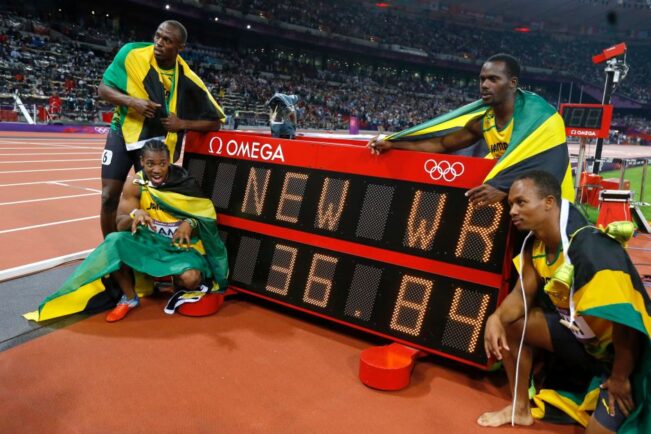
TEAMS | Together Everyone Achieves Most Success
The story is told of an anthropologist who introduced a game to the children of an African tribe. He placed a basket of delicious fruits near a tree trunk and told them: “The first child to reach the tree will get the basket.”
When he gave them the start signal, to his astonishment they were walking together, holding hands, until they all reached the tree. They simply shared the fruits and happily ate them! So baffled, with a furrowed brow he asked them, “Why did you do that when any one of you could get the basket only for yourself?”
They answered with glee, and to his amazement, “Ubuntu!”
“How can one of us be happy if all the rest are miserable?”
“Ubuntu” in their civilization means “I am because we are.” It is Xhosa from the African continent. The venerable Archbishop Desmond Tutu explains: “Africans have a thing called ubuntu. It is about the essence of being human, it is part of the gift that Africa will give the world. It embraces hospitality, caring about others, being willing to go the extra mile for the sake of another. We believe that a person is a person through other persons, that my humanity is caught up, bound up, inextricably, with yours. When I dehumanize you, I inexorably dehumanize myself. The solitary human being is a contradiction in terms. Therefore you seek to work for the common good because your humanity comes into its own in community, in belonging.”

The 4D assessment digs deeper beneath the tip of the iceberg of one’s behaviour as a leader, starting with in one’s unique place in TEAMS
TEAMS THEME LIKE A BROKEN RECORD
Together Everyone Achieves Most Success. The theme of teamwork just won’t go away! To those around me, I must’ve sounded like a broken record over the period. Ah! But broken record will soon take on another important meaning. Read on. It began a couple of weeks ago as I was finishing a write-up for our 4D assessment (image above) at YAW PERBI. The TEAMS portion of the assessment posits that TEAMS should consist of at least one each of a Theorizer, Executor, Analyzer, Manager and Strategist, that idea itself also forming another acronym for TEAMS. No one has all six. Even if they did, they wouldn’t be able to function optimally when all are needed simultaneously. Whatever you don’t have, the Creator has put in someone next to you in your ecosystem. A network is about nextwork, basically a net of next workers.
This became very apparent to me when over these same couple of weeks I happened to be reading the old jewish book of Nehemiah, the guy in diaspora who returned to Jerusalem to lead a rebuilding campaign. The dominant word in the text about the rebuilding is “next.” An array of people, from priests to perfume-makers, male and female, built the next session of the broken walls of the city, some right in front of their house, until walls that had been down for over a century were rebuilt in only fifty-two days! Indeed, teamwork makes the dream work!
Former U.S. President Lyndon Johnson put it another way, “There are no problems we cannot solve together, and very few that we can solve by ourselves.” Going east, the Chinese have a proverb too that says, “Behind an able man there are always other able men.”
BETTER TOGETHER, FOR SURE!
Again over these same couple of weeks, my mother-in-law forwarded a video to me, featuring a passionate speaker who was emphasizing the power of building together. Incidentally, I happened to know the man–pastor Forbes of The Gambia, whose church in Banjul I had the privilege of speaking at about a decade ago. I quickly sent him word that he was trending. And he was. Forbes made a terrific point about how the fastest man in the world remains Usain Bolt of Jamaica, with a 2009 world record he set at 9.58 seconds remaining unbroken by any other human being for a dozen years now. Yet the 4 x 100m relay record by Bolt and three others stands at 36.84s, meaning an average of 9.21 seconds per runner. Get that? That’s a whole 37 seconds better than the best man in the world! That’s the power of team work, of synergy. All of us together, are better than any one of us, even the best of us, any day!
Take the game of soccer too. It doesn’t matter what a great goalkeeper one is, no one wins the game without good strikers who score goals (not to talk of the rest the complimentary forwards and midfielders). In the same way, one may be the best goalscorer in the world but without a strong defence, including goalkeeping, you will be outscored and lose the game. Great leadership assembles a great team of diverse people in gender, ethnicity, age etc. but especially in thinking styles and task orientation.
Every team member has a place where they add the most value. You don’t want to put the best goalscorer as a goalkeeper or vice-versa. You’ve got to know yourself and where you have most value, in order to know where you lack and who to bring on board. Likewise, everyone else on the team should know their niche. In The 17 Indisputable Laws of Teamwork, John Maxwell puts this essential need to have the right people in the right places well on TEAMS as follows:
-
-
-
- The Wrong Person in the Wrong place = Regression
- The Wrong Person in the Right Place = Frustration
- The Right Person in the Wrong Place = Confusion
- The Right Person in the Right Place = Progression
- The Right People in the Right Places = Multiplication
-
-
IN THE END…
All of us together are better than the best of us, any day, every time! Even better than a Usain Bolt! Ubuntu! I am because we are. What is the Theorist without an Executor? What would an Analyzer do without a Manager or Strategist? TEAMS is the way to go. The children of Africa know it. Do we? Together Everyone Achieves Most Success!
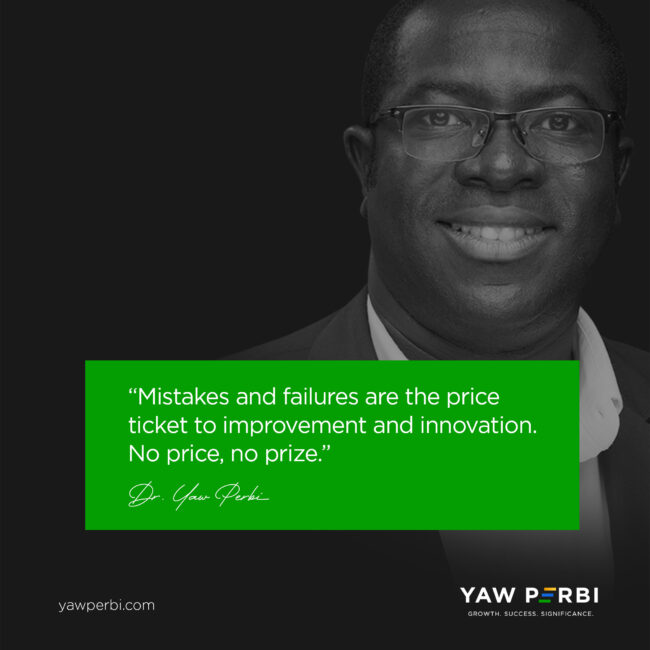
It’s Mid-Year. Time to Close Growth Gaps.
One of my goals at the beginning of the year was to record a short video each week to pep people up in LIFE–Leadership, Integrity, Family, Entrepreneurship. Although speaking-wise I am an award-winning Toastmaster and have been on various media, including hosting television programmes even way back in my medical school days and early professional life, somehow I couldn’t bring myself to starting a YouTube channel and recording something ‘short and sweet’ regularly for my colleagues and coachees.
If today the January goal can now be marked as “done,” having recorded something every single week between then and now (June), it is because I had accountability to close a certain growth gap. The accountability I got was first from my Growth Mastermind group where I shared by goal at the beginning of the year. Exactly on January 15, one of the members, a U.S.-based consultant with Accenture, sent a group WhatsApp message reminding me of my action point to start recording that day. Did I feel ready? No. But to keep my word, I did it anyway! Apparently, we hardly ever ‘feel ready’ for anything. At some point we’ve got to “just do it!” It was Bruce Springsteen the musician who once said, “A time comes when you need to stop waiting for the man [male or female] you want to become and start being the man you want to be.”
MY GROWTH GAPS
In the very opening chapter of his masterpiece on personal growth (Maxwell 2012, 3-9), Dr. John C. Maxwell lists eight growth gaps people get trapped by:
- The Assumption Gap–“I assume that I will automatically grow”
- The Knowledge Gap–“I don’t know how to grow”
- The Timing Gap–“It’s not the right time to begin”
- The Mistake Gap–“I’m afraid of making mistakes”
- The Perfection Gap–“I have to find the best way”
- The Inspiration Gap–“I don’t feel like doing it”
- The Comparison Gap–“Others are better than I am”
- The Expectation Gap–“I thought it would be easier than this”
What had been keeping me from shooting my video snippets and starting my own YouTube channel were the Mistake and Perfection gaps. Those two, I find, are actually two sides of the same coin. There was a ton of information online about how to/not to shoot videos. Now, having 10,000 friends and followers on FaceBook and being well-known and respected in certain circles I didn’t want to come across as a jerk! I was being paralyzed by lighting issues, how my little home office should be arranged, which background would be the best, whether my phone camera was good enough etc. etc.
In fact, I look back with a bit of embarrassment at my first YouTube video which I shot in my decade-old comfy sweater with a Covid-19 bushy hair look, yet I’m so proud that I took the dive. Mistakes and failures are the price ticket to improvement and innovation. No price, no prize. My parents’ generation used to ridicule ‘Made in Japan’ products. My generation has high respect for everything Japanese, from Toyota and Honda through Yamaha to Sony. The Japanese were ridiculed as copycats with poor quality products but the kaizen principle of continuous improvement has brought them this far. Today’s generation has no paradigm of a bad Japanese product. They’ve constantly closed their mistake and perfection gaps. Now, some laugh at China the same way. China would laugh last if they too continually close their growth gaps because guess what? “A mistake is simply another way of doing things,” according to author and professor Warren Bennis. After 10,000 hours of practice, you and I can become geniuses at anything, as my fellow black Canadian, Malcolm Gladwell, asserts in Outliers, largely based on his interpretation of Anders Ericsson’s research.
TO MY FELLOW MISTAKE-AVOIDERS
The desire to find the best way and to be the best is good but I learnt from my mentor John Maxwell looking for the best way can actually be getting things backward. We rather have to get started if we want to find the best way. He says, “it’s similar to driving on an unfamiliar road at night. Ideally, you’d like to be able to see your whole route before you begin. But you see it progressively. As you move forward, a little more of the road is revealed to you. If you want to see more of the way, then get moving“ (Maxwell 2012, 7, emphasis mine).

Such powerful words from Schuller’s ‘Hour of Power’ that run for 40 years! What a poignant question!
I once met the American Christian televangelist, pastor, author and motivational speaker Dr. Robert H. Schuller (picture above) in the mid 1990s. As a World Vision Youth Ambassador, my cohort had the privilege of visiting his ‘all glass’ Crystal Cathedral, singing there (oh the acoustics!) and appearing live on his weekly Hour of Power television programme which be began hosting in 1970 until his retirement in 2010. He is noted for many famous quotes but one that has most gingered me to overcome my mistake and perfection gaps has actually been this poignant question of his: “What would you attempt to do if you knew you wouldn’t fail?”
CONCLUSION
So! Half of the year has gone. If you find there’s a gulf between your year-start goals and your mid-year achievements, it’s a growth gap. Ask yourself: “how do I need to grow to close this gap?” If we would resolve to grow and close the assumption, knowledge, timing, mistake, perfection, inspiration, comparison and expectation gaps, we will end the year smiling. Focus on your growth, not so much on your goals. Then you will grow to hit them. I have, in my video-shooting goal. Now off to the rest!
Reference
Maxwell, John C. 2012. The 15 Invaluable Laws of Growth. New York: Center Street.


